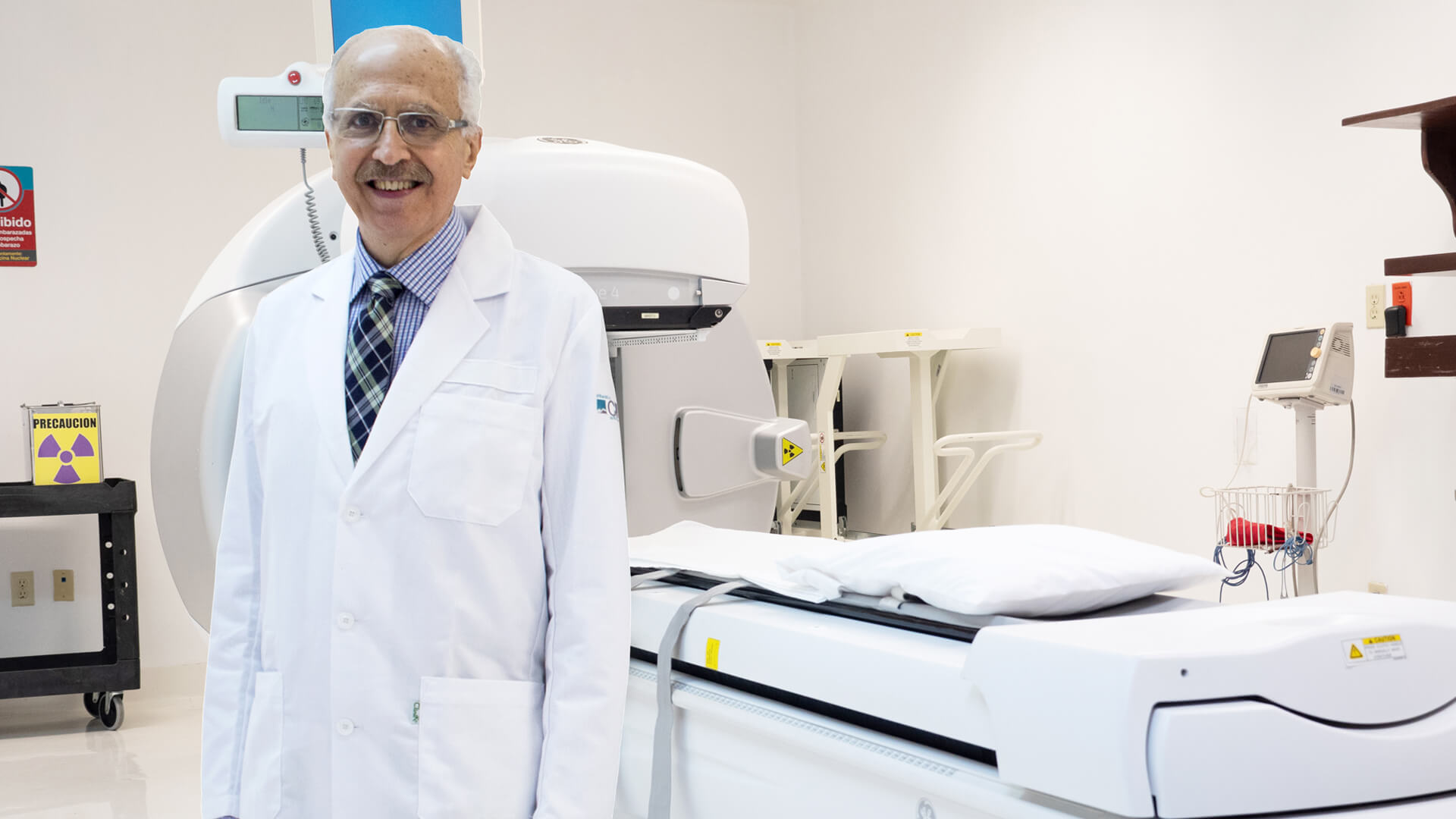
Molecular Imaging and Nuclear Medicine (MINM)
The most representative imaging modalities of the specialty are two: scintigraphy and PET.
1.- Scintigraphy, in which images are generated with the administration of radioactive material that emits gamma radiation and with the use of special equipment known as gamma cameras. The tomography of these studies is known as SPECT (Single Photon Emission Tomography).
2.- Positron emission tomography (PET), in which images are also generated with the use of radioactive materials that emit radiation known as positrons, which usually have a very short life span and have to be produced in a place close to where they will be used. The equipment used is also special and is known as PET equipment.
The images generated in MINM show us functional metabolic information that allows very early detections of diseases, even before symptoms appear in the patient or there is any anatomical change that can be detected by radiological studies, or it provides us functional information useful for the therapeutic decision-making by your treating physicians.There are a large number of studies that are carried out in the MINM area and that cover almost all medical specialties. The best known are thyroid scan, bone scan, myocardial perfusion scan, kidney scan, etc. There are several dozen studies that can be done in the area.
Depending on the study requested and/or organ to study, it will be the type of radioactive material to be used. The route of administration is usually intravenous, but in some cases, it can be by another route.
The studies generated in MINM are very safe for the patient since very small amounts of radioactive material are administered that practically never cause allergic reactions and the amount of radiation received is generally much less than that of other more well-known radiological studies. They can be performed in patients from newborns to the elderly. These procedures should not be performed on women who are pregnant or suspected of being pregnant. Lactation patients should follow recommendations depending on the study.
For some years now, both MINM processes have been integrated with another radiological modality equipment such as computed tomography (CT) or Magnetic Resonance (MR), with the creation of hybrid equipment and studies, of which the best known are SPECT / CT, PET / CT and more recently PET / MR. This combination allows, in a single session, to acquire both functional and anatomical images, which contribute to establishing a better and more comprehensive evaluation of the patient.
Within the therapeutic area, a greater amount of radioactive material is administered aimed at treating certain conditions that we know concentrate the particular radioactive material. The best-known therapy is for hyperthyroidism or thyroid cancer with radioiodine, although other radionuclides are currently being used for therapies for certain types of cancers, such as prostate cancer and neuroendocrine cancer. Said therapies must be requested by your treating physician and require a more complete pre-therapy evaluation by the Nuclear Physician in charge of said therapy.
All MINM procedures need to be programmed in the area in advance, both to schedule the time and hour of use of the equipment and the availability of radioactive material. It also serves to provide patients and/or family members with study information, preparation instructions, clear and concise measures about radiation safety to follow, and requirements that may be necessary.
All MINM staff are here to help and serve you with any questions or comments in the Department of Molecular Imaging and Nuclear Medicine located on the PB of the Hospital and the phone (662) 259 0900 ext. 1161.
Business Hours:
For more information call: (662) 259 0900 Ext. 1161.

